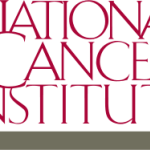- Industria: Government; Health care
- Number of terms: 6957
- Number of blossaries: 0
- Company Profile:
The National Cancer Institute (NCI) is part of the National Institutes of Health (NIH), which is one of 11 agencies that compose the Department of Health and Human Services (HHS). The NCI, established under the National Cancer Institute Act of 1937, is the Federal Government's principal agency for ...
A humanized IgG1 monoclonal antibody directed against the cell surface glycoprotein CD-38 with potential antineoplastic activity. Anti-CD38 monoclonal antibody SAR650984 specifically binds to CD38 on CD38-positive tumor cells. This may trigger antitumoral antibody-dependent cellular cytotoxicity (ADCC), complement-dependent cytotoxicity (CDC) and apoptosis eventually leading to cell lysis in CD38-expressing tumor cells. CD38, a type II transmembrane glycoprotein, is present on various immune cells and hematologic malignancies, and its expression has been correlated with poor prognosis.
Industry:Pharmaceutical
A humanized IgG1 monoclonal antibody directed against human mesothelin with potential antineoplastic activity. Amatuximab binds to mesothelin, triggering an antibody dependent cellular cytotoxicity (ADCC)-mediated host immune response against mesothelin-expressing tumor cells, which may result in tumor cell lysis. Mesothelin, a 40kDa cell surface glycoprotein, is overexpressed in several human tumors, including mesothelioma and ovarian and pancreatic adenocarcinomas.
Industry:Pharmaceutical
A humanized IgG1 monoclonal antibody directed against human endosialin/TEM1 (tumor endothelial marker;CD248) with potential anti-angiogenic and antineoplastic activities. Anti-endosialin/TEM1 monoclonal antibody MORAb-004 binds to and inhibits the activity of cell surface protein endosialin/TEM1, which may result in the inhibition of angiogenesis, tumor cell proliferation and metastasis. Endosialin/TEM1 plays a key role in angiogenesis and may be overexpressed on tumor stromal cells and endothelial cells.
Industry:Pharmaceutical
A humanized IgG1 monoclonal antibody directed against CD80, the natural ligand for the T-cell antigen CD28 which mediates T-cell and B-cell adhesion. Galiximab binds to CD80 expressed on the cell surfaces of follicular lymphomas, resulting in antibody-dependent cell-mediated cytotoxicity (ADCC). CD80 is expressed on activated B-cells and gamma-interferon-stimulated monocytes and is often expressed at low levels on the surfaces of follicular lymphoma cells and other lymphoid malignancies.
Industry:Pharmaceutical
A humanized IgG1 monoclonal antibody directed against CD11a, the alpha subunit of human leukocyte-function-associated antigen type 1 (LFA-1), with immunosuppressant activity. Efalizumab binds to CD11a, which is expressed on all leukocytes, resulting in a reduction in the cell surface expression of CD11a. In addition, this agent inhibits the binding of LFA-1 to intercellular adhesion molecule-1 (ICAM-1), resulting in the inhibition of leukocyte adherence and the suppression of cell-mediated immunity. LFA-1 binding to ICAM-1 is involved in the activation of T lymphocytes, adhesion of T lymphocytes to endothelial cells, and migration of T lymphocytes to sites of inflammation.
Industry:Pharmaceutical
A humanized CH2 domain-deleted second-generation monoclonal antibody based on the antibody B72. 3 that is directed against tumor-associated glycoprotein 72 (TAG72). TAG72 is expressed by gastric, breast, pancreatic, colorectal, and ovarian carcinoma cells.
Industry:Pharmaceutical
A humanized bivalent antibody directed against both cytotoxic effector cells expressing Fc gamma receptor type I (Fc gammaRI, or CD64) and HER2/neu-overexpressing tumor cells with potential antineoplastic activity. Bispecific antibody MDX-H210 was constructed by chemically linking Fab' fragments of the anti-HER2/neu-specific monoclonal antibody 520C9 and the Fab' fragments of the anti-Fc gammaRI-specific monoclonal antibody H22. This agent selectively binds to both HER2/neu-expressing tumor cells and Fc gammaRI-expressing cytotoxic effector cells, which may trigger antibody-dependent cell-mediated cytotoxicity (ADCC) and cell lysis of HER2/neu-expressing tumor cells. While HER2/neu is overexpressed in a variety of epithelial malignancies, expression of Fc gammaRI is primarily found in cytotoxic immune cells, including monocytes, macrophages, and cytokine-activated polymorphonuclear (PMN) cells.
Industry:Pharmaceutical
A humanized anti-idiotypic (anti-Id) monoclonal antibody (MoAb) that mimics the disialoganglioside GD2 with potential immunostimulating and antineoplastic activities. Upon administration, monoclonal antibody 4B5 anti-idiotype vaccine may elicit both cellular and humoral immune responses against GD2- expressing tumor cells. GD2 is a glycosphingolipid (ceramide and oligosaccharide) that may be highly expressed by melanomas and other neuroectodermal tumors, while only minimally expressed by normal tissues.
Industry:Pharmaceutical
A humanized anti-ganglioside GM2 (GM2) monoclonal antibody with potential antineoplastic and immunomodulating activities. Upon administration, anti-ganglioside GM2 monoclonal antibody BIW-8962 may activate an antibody dependent cellular cytotoxicity (ADCC) against GM2-expressing tumor cells. GM2 is a tumor associated antigen (TAA) overexpressed on the surface of many cancer cells, such as multiple myeloma (MM) cells and neuroblastoma cells.
Industry:Pharmaceutical
A humanized agonistic monoclonal antibody targeting the CD137 receptor with potential immunostimulatory and antineoplastic activities. Urelumab specifically binds to and activates CD137-expressing immune cells, stimulating an immune response, in particular a cytotoxic T cell response, against tumor cells. CD137 is a member of the tumor necrosis factor (TNF)/nerve growth factor (NGF) family of receptors and is expressed by activated T- and B-lymphocytes and monocytes; its ligand has been found to play an important role in the regulation of immune responses.
Industry:Pharmaceutical
